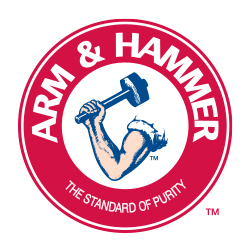利用RFCs饲养青年奶牛的研究
公司新闻 | 2021.03.03

Raising dairy calves — keeping them healthy and growing — can be challenging.
Health issues are a constant problem for calves raised in confinement unless they have a clean environment and good nutrition.
They also need strong immune systems to ward off pathogens encountered in a typical environment; health challenges can occur even in a well-managed dairy.
Dr. Jeff Weyers of Stephenville, Texas, said the 2007 National Animal Health Monitoring System reported that for U.S. dairies 57 percent of calf mortality was due to diarrhea. Most cases occur in calves less than a month old.
A relatively new technology is the use of Refined Functional Carbohydrates — known by the initials RFC — to help establish a healthy immune foundation for calves.
“These are part of yeast cell walls; we harvest them from a yeast called S. cerevisiae, using certain enzymes. This yields mannan oligosaccharides (MOS), beta glucans and D-Mannose,” said Weyers, technical service manager for Arm & Hammer Animal Nutrition.
RFCs are ingredients in pre-biotic supplements. They feed the probiotics — live bacteria that are normal inhabitants of the gastrointestinal tract, needed for proper gut function.
“The main prebiotic that everyone in the dairy industry knows about is MOS,” he said. “Its main function is for gut health. It works in the small intestine against E. coli, salmonella, klebsiella and other nasty pathogens that can cause diarrhea and digestive issues.
“MOS is the prebiotic part of the RFC, providing food for beneficial bacteria,” he said.
The gut needs an adequate, healthy population of “good bugs” in residence, leaving less room for “bad bugs” to come in and cause harm, he said.
“Arm & Hammer makes an RFC product that includes MOS and mannose sugar,” he said. This sugar is beneficial in the gut because it binds to the pili (fingerlike projections) of E. coli and salmonella and prevents them from attaching to the intestinal lining. The pathogens then pass harmlessly out through the tract.
“The third component in our RFC product is beta glucans, liberated from the yeast cell wall. It’s been proven to bind mycotoxins (which sometimes occur in feed), and also stimulates the immune system to get into a ready state. There has been a lot of research on this in human medicine, for cancer,” said Weyers.
“An additional component to our RFC product is a refined functional carbohydrate that binds Cryptosporidium parvum, a protozoal pathogen that baby calves often have to deal with, especially in dairies,” he said.
RFCs make the calves less vulnerable to gut damage from cryptosporidiosis.
The product made by Arm & Hammer is called Celmanax and contains yeast culture as well as the RFCs.
“Calves that receive it gain immune enhancement plus more efficient use of feed, and a healthier gut,” he said.
Adding RFCs to milk or milk replacer can help improve immune function indirectly (preparing it for future challenges) and directly — by providing pathogen-binding defense against diseases the calf is exposed to.
“This product is especially useful for calves with scours or some other kind of gut issue,” he said. “It’s not a cure-all but is very effective against most pathogens that damage the gut.”
It can be helpful in supportive treatment, along with fluids and electrolytes.
Research is ongoing to uncover more of the benefits of RFCs.
“Trials show that calves fed RFCs recover faster than calves that don’t receive RFCs,” he said. “Healthier calves grow better, not having to expend energy fighting infections.”



